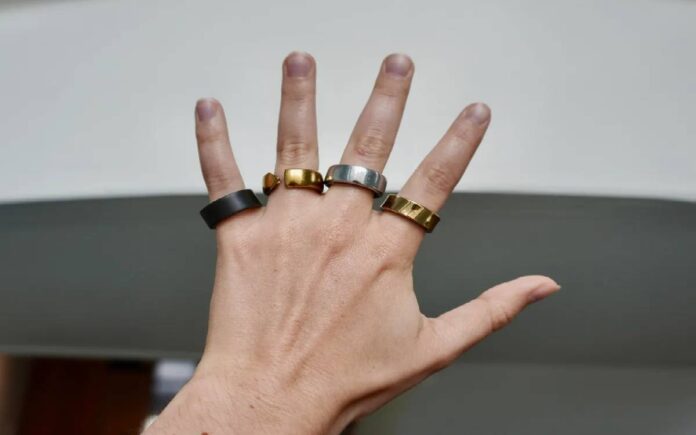Washington, D.C. – The battle for dominance in the fast-growing smart ring market has reached a critical juncture as Finnish healthtech pioneer Oura clinched an early legal victory in its high-stakes patent dispute with Indian startup Ultrahuman and Chinese brand RingConn.
An initial ruling by an Administrative Law Judge (ALJ) at the U.S. International Trade Commission (ITC) on April 26, 2024, found that both Ultrahuman and RingConn infringed on multiple core patents held by Oura, which cover the hardware design, sensor integration, and signal processing technology that power its widely known smart ring products.
First reported by ZDNet, the ruling marks a pivotal moment that could potentially ban the import of Ultrahuman and RingConn rings into the U.S. — a market seeing surging demand for biometric wearables.
What Is Oura Alleging?
Oura, founded in 2013, filed its complaint with the ITC in August 2023, accusing both rivals of copying not only the distinctive ring form factor, but also the underlying health-tracking technology that distinguishes Oura Rings. The complaint cites multiple U.S. patents tied to its sleep monitoring, sensor array, and biometric analytics algorithms.
“Every element of every asserted claim” in Oura’s intellectual property was allegedly infringed upon, a spokesperson told ZDNet.
The Finnish company further alleged that its competitors reverse-engineered Oura Rings, purchasing and disassembling them to replicate their functionality and design.
What Did the Judge Conclude?
The ITC judge made several damning findings:
- Both Ultrahuman and RingConn were found to infringe all asserted claims of Oura’s valid patents.
- Ultrahuman submitted false evidence, including claims of a Texas-based manufacturing facility, which the judge found to be fabricated.
- Oura was the only party to present a credible expert witness during the proceedings.
Notably, the judge also emphasized that Oura does not hold a monopoly over the U.S. wearables space, as competitors like Apple, Samsung, and Fitbit provide alternative biometric devices — weakening any argument against potential exclusion orders.
What Happens Next?
The judge’s ruling now heads to the full six-member ITC Commission, which will review the case and issue a final determination by September 26, 2024. If the Commission upholds the ruling, Oura could secure:
- Exclusion orders barring importation of infringing Ultrahuman and RingConn products into the U.S.
- Cease-and-desist orders stopping sales via ecommerce platforms like Amazon and direct-to-consumer (DTC) websites.
Why It Matters
The decision reinforces Oura’s reputation as a market leader and innovator in the smart ring category. Its third and fourth-generation rings offer features such as:
- Sleep and readiness scoring
- Menstrual and fertility prediction
- Heart rate, SpO2, and body temperature tracking
- Early illness detection using respiratory and thermal signals
Backed by over $350 million in funding, Oura continues to evolve through AI integrations, a strategic partnership with Dexcom, and its acquisition of Finnish metabolic health firm Veri.
“We’re happy with the initial determination, which validates our position and the strength of our patents” ,said an Oura spokesperson on April 29, 2024.
Impact on Rivals
For Ultrahuman, which recently raised $35 million and is in talks with WestBridge Capital following a stalled deal with SoftBank, the ruling presents a serious hurdle. The startup has been expanding aggressively in both India and international markets.
RingConn, a major seller on Amazon in the U.S., could also face severe setbacks, including forced product redesigns or costly licensing agreements if the Commission affirms the patent violations.
As the legal dust settles, the outcome could reshape the competitive landscape of the smart ring market, with intellectual property enforcement taking center stage.



